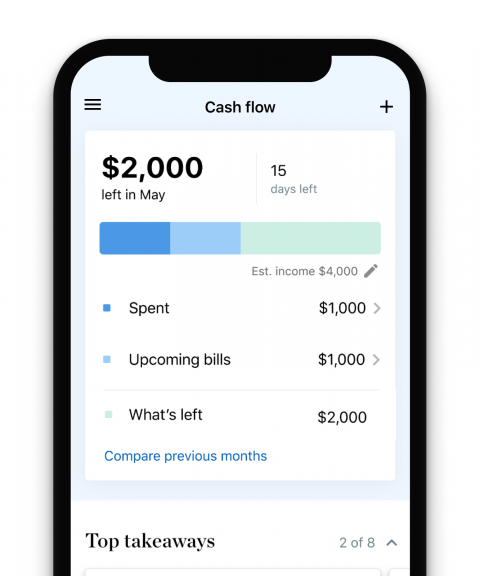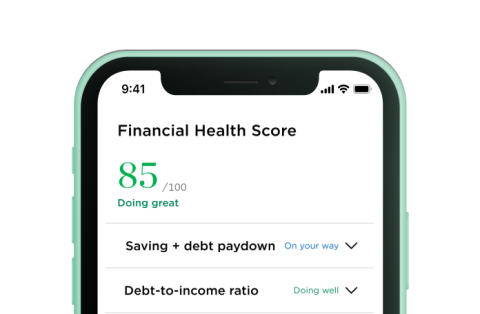How Much Should I Spend on Rent?

Many or all of the products featured here are from our partners who compensate us. This influences which products we write about and where and how the product appears on a page. However, this does not influence our evaluations. Our opinions are our own. Here is a list of our partners and here's how we make money.
How much should you spend on rent? Before you start scanning Craigslist and Zillow for rental options, determine how much you can truly afford to pay. Here are a few ways to figure that out.

How much should you spend on rent? It depends
One popular guideline is the 30% rent rule, which says to spend around 30% of your gross income on rent. So if you earn $3,200 per month before taxes, you could spend about $960 per month on rent.
This is a solid guideline, but it’s not one-size-fits-all advice.
If you live in an affordable area, for example, you shouldn’t pass up an apartment renting for $575 per month simply because it’s only 18% of your income. On the flip side, sticking to spending 30% on rent isn’t always feasible in a place like New York City or San Francisco, where median rents are over $2,000 for a one-bedroom apartment, according to March 2024 data from Apartment List, a rental search service.
Work out how much of your income should go to rent with the 50/30/20 rule
You can also use the 50/30/20 budget as a guide to figure out how much you can afford to spend on rent. This method allocates your take-home pay (after taxes) to 50% for needs, 30% for wants and 20% for savings and additional debt payments.
So if you earn $3,200 per month after taxes, you’d divvy your paycheck up like so:
$1,600 for needs like rent, utilities, groceries, insurance and minimum debt payments.
$960 for wants like shopping, happy hour and concerts.
$640 for savings and additional debt payments.
How much rent can you afford?
Let’s stick with our $3,200 per month income example. If you have a lot of expenses that fall under the needs category, your budget for rent could be pretty tight. Consider this example:
$280 monthly student loan payment.
$360 monthly car payment.
$135 monthly car insurance.
$175 monthly grocery tab.
Those expenses total $950 per month, leaving just $650 per month for rent and utilities. And that’s not nearly enough, when the average apartment rent nationwide is $1,702, according to listing service Rent Cafe, based on March 2023 data covering 124 U.S. markets.
Rather than following a rule that isn’t always realistic, try adding up other expenses and identifying savings opportunities to work out a more realistic rent budget.
Keep in mind that there may be special circumstances that require you to go above or below your budget for rent, such as:
You have a specific savings goal. If you have a big short- or long-term financial goal to save for, like education or buying a car, you may want to reduce your rent in order to meet it.
You’re in an unstable living situation. It may sometimes be necessary to spend more in rent (if you have the means) or to opt for a so-so rental if your current living situation is unsafe or otherwise unstable.
You have to move for work. It might make sense to spend more on rent if you have to move to a unique location to be closer to work, or if you’re moving somewhere new for a change of pace that will help improve your quality of life.

Factor in other costs
Where you live affects everything from your commute to your workout routine. Factor in additional costs (or savings) you might incur depending on your rental choice.
Living farther from the city center, for example, is often less expensive. But you could spend hundreds each month on transportation costs to commute to and from work and social engagements.
Some rentals include utilities like gas and water, have an on-site gym or a washer and dryer in-unit. Factor in those perks when comparing the cost of rentals. An on-site gym, for example, could save you $100 per month or more on a gym membership. And in-unit laundry equals savings on time and money versus coin laundry or trips to the laundromat.

Look for savings
Don’t neglect your savings in order to spend more on rent. Future you will thank you for making your emergency fund and retirement savings a priority. But in critical times, tactics like dipping into an emergency fund or applying for rental assistance programs may be necessary to help you pay rent when you can’t afford it.
If what you can afford doesn’t align with the rental market in your area, look for ways to cut costs elsewhere. It’s natural — and wise — to look at non-essential spending to free up space in your budget, but you can often find savings among necessary expenses, too.
Negotiate your bills: Heat, water and electricity are needs, but premium cable, for example, falls squarely in the “wants” category. Try negotiating with your service providers to get a better deal on things like internet, cable and your cell phone plan.
Shop around for car Insurance: Compare car insurance rates to find the best deal. And if you’re a good driver, you could save more in your car insurance. For example, Progressive’s Snapshot rewards program gets you a discount based on how and how much you drive.
Spend less on groceries: Get in the habit of using coupons and planning your meals to maximize your grocery budget.
Get a roommate: Living solo means shouldering the burden of rent and utilities on your own. Instead, find a roommate and split the cost of renting a two-bedroom or even a house. Need a more affordable option? Consider renting a room in a collective house.
Look for move-in deals: Sometimes landlords or rental agencies offer special promotions to entice new potential tenants. You may be able to get a discount on the first month’s rent or bypass some of the deposit requirements. You may also be able to negotiate a better rent price if you offer to sign a longer lease.

Get a custom financial plan and unlimited access to a Certified Financial Planner™
NerdWallet Advisory LLC

on Capitalize's website




